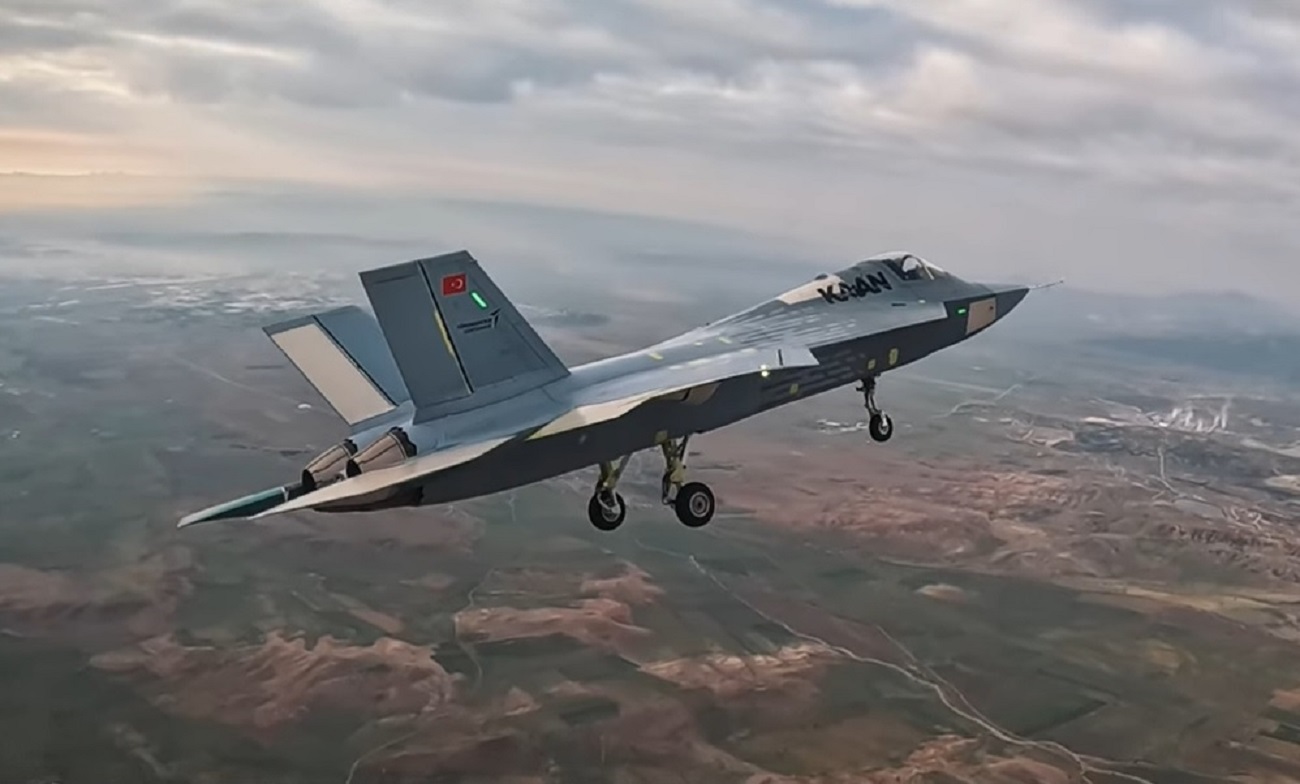In February 21, 2024, Turkish Aerospace Industries (TAI) TF KAAN conducted it’s maiden flight. TAI shared a video showing a KAAN stealth multirole fighter taking off and then returning to Mürted Airfield Command in the north Ankara. The successful flight, reaching an altitude of 8,000 feet with a speed of 230 knots, highlights President Recep Erdo?an’s commitment to nationalizing Turkey’s defense industry. This milestone represents a crucial step in realizing Erdo?an’s vision of an indigenous, advanced fighter. Manufactured by Turkish Aerospace Industries (TAI, Tusas), the KAAN, a fifth-generation stealth multirole fighter, completed a 13-minute flight, signaling a new era in Turkey’s defense capabilities. The aircraft’s initial performance indicators are promising, and it is transitioning from its original air-superiority role to a versatile multirole platform.

Turkey’s defense planners are eyeing even more ambitious goals for the KAAN, envisioning a ‘6th generation DNA’ that involves integrating the loyal wingman concept with unmanned combat aircraft. The collaboration with Baykar and TUSAS on projects like Kizilelma and ANKA-3 reflects Turkey’s commitment to advancing its defense capabilities. While the KAAN’s development is a testament to Turkey’s technological prowess, the nation is also strategically positioning itself in the international weapons market. With plans to replace the Turkish Air Force’s F-16 Fighting Falcon, the KAAN aims to be a sought-after asset for foreign governments. To ensure its cost-effectiveness, Turkey is actively seeking export opportunities.

The TAI TF KAAN program, previously known as TF-X, emphasizes features associated with fifth-generation fighter jets, including low radar cross-sectional density, internal weapons bays, and the ability to supercruise. The aircraft’s Advanced Carbon Composites fuselage, developed by TAI’s facility with experience from Lockheed Martin’s Joint Strike Fighter program, ensures cutting-edge technology integration. The TF-X’s advanced active electronically scanned array radar, developed by ASELSAN using gallium nitride technology, adds another layer of sophistication. Integration with accompanying UAVs through encrypted datalink connections demonstrates a forward-looking approach to modern warfare.

Prototypes and the initial batch of KAAN stealth multirole fighter will feature General Electric F110 engines until the completion of the TAEC engine, a joint venture between Turkish KALE and British Rolls-Royce. Additionally, the pursuit of an alternative engine from an undisclosed nation highlights Turkey’s commitment to ensuring the KAAN’s adaptability and global competitiveness. Until that date, Turkish Aerospace Industries aims to manufacture 3 prototypes. The Block-1 configuration is planned to be developed until 2029. The manufacture of 10 Block-1 fighter jets is planned within the scope of Phase-2, and the aircraft will be delivered to the Turkish Air Force between 2030 and 2033. In Phase-3, between 2034 and 2040, development and mass production activities of other TF-X blocks is planned.
















